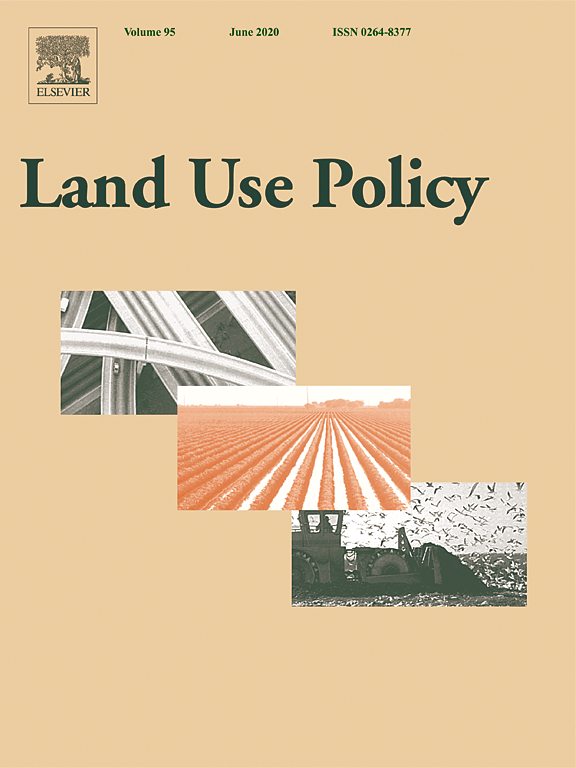Location
Land Use Policy is an international and interdisciplinary journal concerned with the social, economic, political, legal, physical and planning aspects of urban and rural land use. It provides a forum for the exchange of ideas and information from the diverse range of disciplines and interest groups which must be combined to formulate effective land use policies. The journal examines issues in geography, agriculture, forestry, irrigation, environmental conservation, housing, urban development and transport in both developed and developing countries through major refereed articles and shorter viewpoint pieces.
Land Use Policy aims to provide policy guidance to governments and planners and it is also a valuable teaching resource.
ISSN: 0264-8377
Members:
Resources
Displaying 61 - 65 of 279Does social capital matter in climate change adaptation? A lesson from agricultural sector in Yogyakarta, Indonesia
Climate change increases the vulnerability of agricultural sector due to the increasing threat from pest attacks. Mitigation of a threat that results from climate change requires adaptation strategies. This study investigates farmers’ willingness to participate in the process of climate change adaptation in Yogyakarta, Indonesia; particularly in facing the increasing risk of pest attacks. Using a logistic regression model, we tested the impacts of social capital on farmers’ willingness to participate.
Legal aspects of synchronising data on real property location in polish cadastre and land and mortgage register
In recent years, many attempts have been made in Poland to enable automatic data exchange between the system of the Cadastre, being the responsibility of local government units, and the system of Land and Mortgage Register, maintained by the judicial administration (supported by the state apparatus represented by the Ministry of Justice). Such exchange is necessary as it is dictated by the establishment of the Integrated Real Estate Information System.
Adoption and diffusion of improved technologies and production practices in agriculture: Insights from a donor-led intervention in Nepal
Adoptions of improved technologies and production practices are important drivers of agricultural development in low-income countries like Nepal. Adopting a broad class of such technologies and practices is often critical for meeting the multifaceted goals of efficiency, profitability, environmental sustainability, and climate resilience.
Rethinking “development”: Land dispossession for the Rampal power plant in Bangladesh
In this article, we critically review the developmental claims made for the construction of the Rampal power plant in southwestern Bangladesh, in the light of evidence about transformations of land control related to this construction project. Land has become a heavily contested resource in the salinity-intruded southwestern coastal area of Bangladesh. Changes in land control for the construction of the Rampal power plant and similar projects have intensified decades of struggles over rights and access to land.
Urban proximity, demand for land and land shadow prices in Malawi
We assess the spatial and intertemporal variation in farmland prices using per hectare minimum willingness to accept (WTA) sales and rental (shadow) prices in Malawi. We use three rounds of nationally representative farm household panel data from the Living Standards Measurement Surveys (LSMS), collected in 2010, 2013 and 2016. The sample is split in quintiles based on distance from the nearest major city, building on the land valuation and transaction cost theory, and agrarian political economy perspectives on global and national land transactions.



